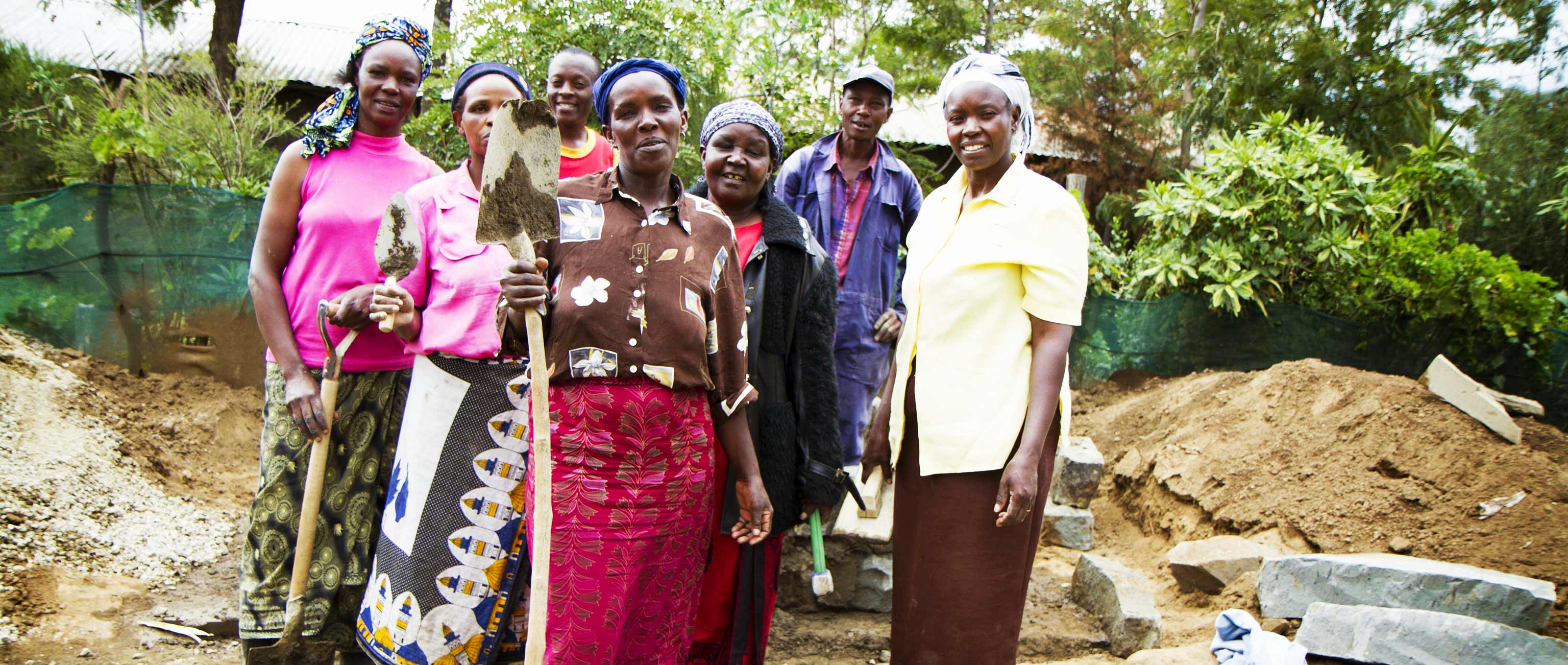Solutions for a Changing Climate

Erratic rainfall, extreme droughts and floods, and deterioration in water quality brought on by climate change will intensify existing water stress and water allocation challenges. By 2025, absolute water scarcity will affect a projected 1.8 billion people. Large-scale urban population growth in the Global South and increased competition for water resources across sectors will restrict sustainable access to water, sanitation, and hygiene (WASH) services and flood protection for marginalized urban populations, especially those living in informal settlements.
With operations in cities in six countries in Africa and South Asia, Water and Sanitation for the Urban Poor (WSUP), a 2014 Skoll Awardee, aims to achieve sustained citywide delivery of water and sanitation services, a key component of climate change resilience. They work to close the gap between underserved low-income communities, and middle- and high-income communities already served by existing municipal and utility systems.
WSUP partners with urban WASH service providers to implement and showcase new models serving low-income communities, provides technical assistance to governments, municipal utilities and private providers, and mobilizes public and private financing to address the urban WASH challenge. Since 2006, WSUP has reached nearly 15 million people with improved water and sanitation services and hygiene education, and mobilized more than $200 million to scale up innovative models. WSUP has incorporated climate adaptation measures across its work.
Many of the cities where WSUP works have faced extreme weather events in recent years that have posed significant issues. “In East Africa this year, rains have been poor, affecting water supply in cities such as Nairobi in Kenya down to Maputo in Mozambique,” reports Madhu Rajesh, WSUP’s Director of Partnerships & Development. “Often, it is the low-income communities that suffer the most under water rationing. Reduced access to clean drinking water and droughts have made people more likely to use unsafe water resources, deterred people from bathing and handwashing, and restricted the use of water-flushed toilets.”
At the other end of the spectrum are floods that damage basic facilities and increase the spread of fecal-oral diseases. WSUP faces particular challenges with flooding across all its program countries: Bangladesh, Ghana, Kenya, Madagascar, Mozambique, and Zambia. According to the Global Climate Risk Index, over a 10-year period Bangladesh was the 6th most affected country. In 2015, Mozambique was the country most affected, while Madagascar is situated in one of the most cyclonic zones in the world.
“Making water and sanitation services more resilient, and better suited for local conditions, is at the heart of how WSUP works,” said Rajesh. “Improving resilience means developing adaptive capacities in response to climate change. In the water sector this can include making efficient use of water resources. For sanitation, flood-proof toilets are essential, while actions for hygiene involves awareness-raising on health risks.”
During heavy rainfalls, better managing stormwater reduces damage to communities. Encouraging low-income residents to empty the pits for their latrines just before the rains come also reduces the amount of fecal waste spreading into communities during flooding. This insight has informed the marketing for pit-emptying services, small businesses that WSUP supports in cities such as Lusaka, Zambia and Kisumu, Kenya. In areas where the water table is high, heavy rains can very quickly lead to flooding, and raised toilets are critical. WSUP also piloted an innovation called Container-based Sanitation, where fecal waste is stored in sealed cylinders, protected from flooding.
As water becomes scarcer, utilities must emphasize efficiency. Water losses from leaking pipes, commercial losses such as malfunctioning meters, and even theft all tax an already stressed infrastructure. WSUP’s work with a utility in Madagascar led to an estimated three million cubic meters of water savings annually—enough to fill up 1,200 Olympic-size swimming pools. “Reducing non-revenue water involves regular maintenance and repairs of broken pipes, thereby ensuring infrastructure is more resistant to potential shocks,” said Rajesh. “WSUP has worked on this challenge in all the countries where we operate.”
Notifications